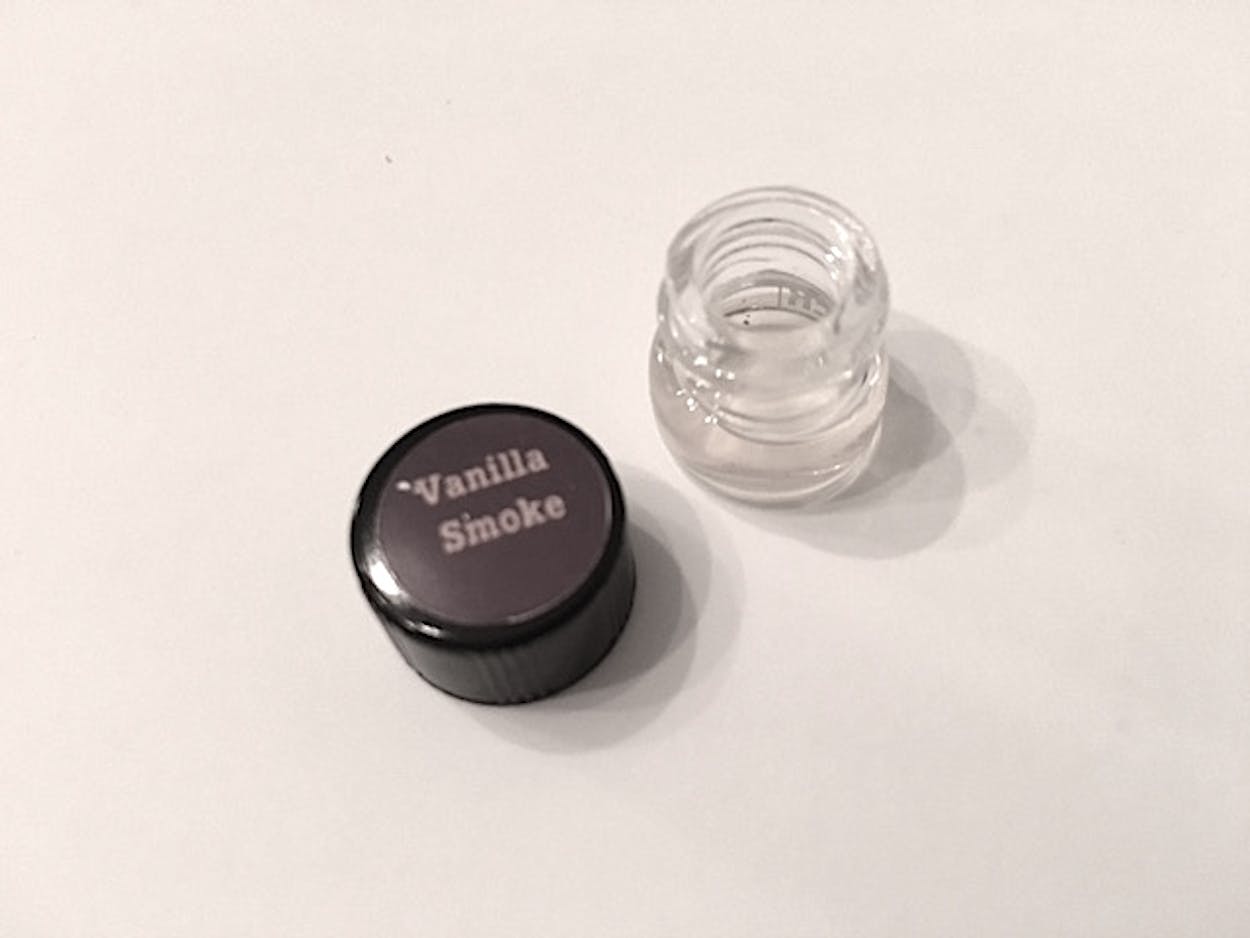Capturing the aroma of sweet wood smoke isn’t a challenge to pitmasters. Similarly, backyard cooks know how the smell can permeate your clothes and linger hours after the ribs are done. But thanks to Vanilla Smoke, a scent from the all-natural Aftelier Perfumes, you can get that fragrance without the prep work.
Mandy Aftel, the creator of Aftelier Perfumes, was the recent subject of a glowing profile in The New York Times in which she champions natural scents over the dominant synthetic perfumes. She explained to me over the phone that the key to Vanilla Smoke is a CO2 extraction of lapsang souchong tea that gives it the smoky smell. There are other natural compounds (besides smoke itself) that result in a similar smokiness. Aftel says she has created a campfire-scented candle with cade from rectified birch and that choya nak (roasted seashells) can also be used for smoky aromas.
When Aftel created this scent she wanted something to soften the campfire smell, and vanilla was an obvious choice. Wood smoke contains many compounds that flavor meat and add aroma—one of which is vanillin, which mirrors the smell of vanilla. “I thought it would be very beautiful with smoke,” Aftel explains. “I thought the two together would move it farther away from dessert land.” She’s right. The smell is heavier on the vanilla than the smoke, but it’s stouter than what you’d associate with vanilla extract. “I wanted to focus on the rougher more resinous, woody aspects of vanilla more than the cupcake part.”
All-natural perfumes buck a modern trend in the industry, and Aftel is the first to agree with people who aren’t big fans of most perfumes. She thinks that many are too aggressive, like a nasal assault on its surroundings. “I feel much more of a kinship to people in the world of food who are thinking carefully about ingredients,” she says. I told her about the brisket I was smoking during our conversation, and how I didn’t realize I was creating my own natural perfume. “It’s probably very sexy,” she says. I guess that makes smoky pitmasters more desirable by default, and Aftel agreed. “Nobody needs to do anything more if they have that.”
Much like barbecue hounds might have fretted over the demise of wood cooking a couple of decades back, Aftel worries about the ever-decreasing level of aromas in our lives. As produce is bred and manipulated to last longer, not bruise, taste sweeter, and ripen off the vine, one of the characteristics we lose is smell. It’s not a focus anymore, which you can tell pretty easily this coming weekend when you stick your nose into a dozen Valentine’s Day roses. You’ll probably smell the paper they’re wrapped in.
Aftel believes we should be using our nose to be discerning at the market, using it as “a primary piece of diagnostic information when you’re shopping for ingredients.” Many pitmasters use their noses to select wood from their stack, which tells them that a piece more pungent than others of the same species is probably more green. Or that if it smells musty or mildewy, it might not be considered for the smoker because it could create undesirable smoke.
Come to think of it, using your nose is a pretty good way to shop for a barbecue joint too. Stand in the parking lot and inhale deeply.








